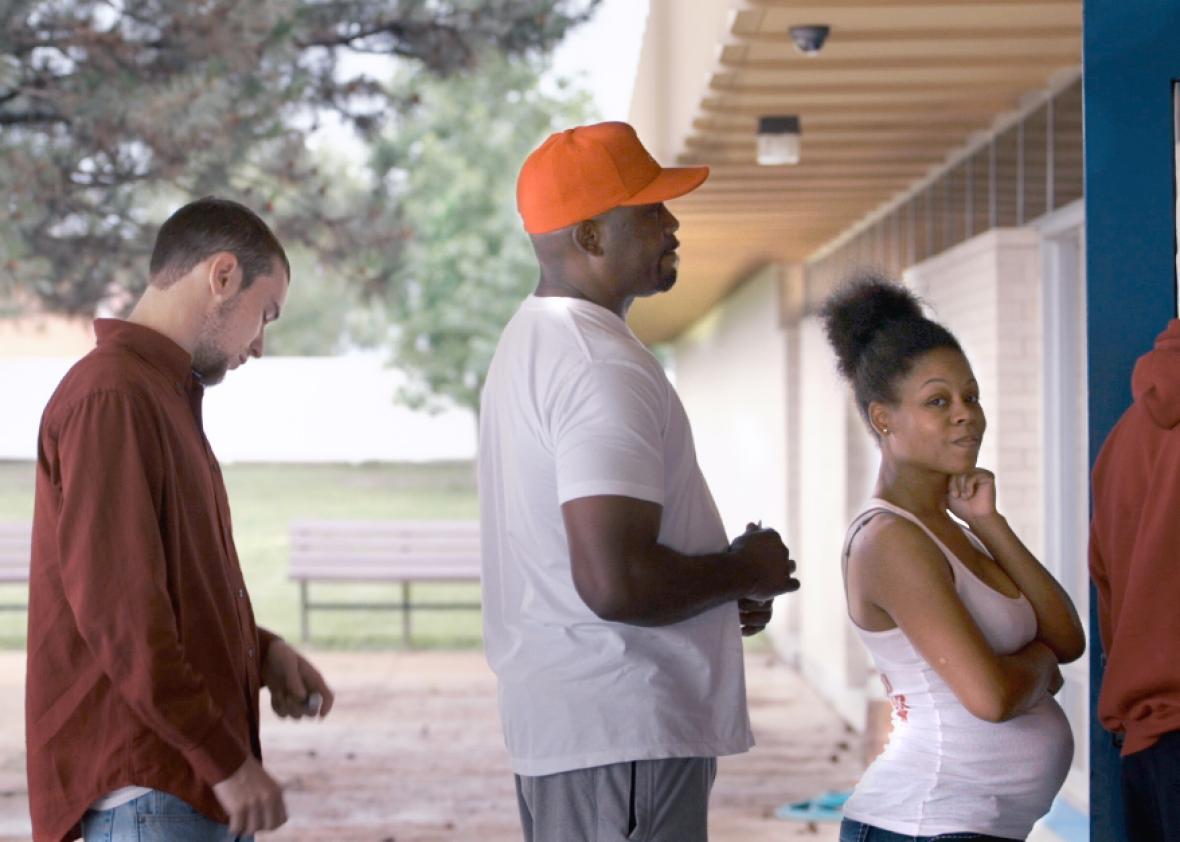If you’re fan of Kanye West and outmoded musical formats, you can get a copy of Kanye West’s Yeezus on limited-edition cassette tape. There’s just one catch: You have to go to prison first.
The impact of the skyrocketing rate of mass incarceration in the U.S. has been widely studied, but Brett Story’s documentary The Prison in Twelve Landscapes, which airs tonight on PBS Independent Lens, casts its gaze beyond the headlines: not on the communities decimated by the drive to lock up young, poor, and especially black, men but on the way society at large has adapted to cushion, and in some cases, profit from, that impact. Story’s camera takes in raging California wildfires as we hear the testimonies of the female prisoners conscripted to fight them and watches from the booth as a radio DJ sends out dedication upon dedication to loved ones behind bars. In St. Louis County, Missouri, black residents stand in long lines to pay fines for trumped-up infractions; one woman recounts how she was jailed for failing to pay a $175 ticket for an errant trash can lid. And then there’s the man who, after struggling to send items to his incarcerated brother that passed the prison’s complicated rules for contraband, started a business to assemble prison-compliant care packages. Those Kanye West tapes, for example, that are allow where CDs are not have to be specially made without the metal screws that usually hold them together.
Story’s method is contemplative rather than urgent: Like the relatives whose bus ride to a far-off prison is threaded through The Prison in Twelve Landscapes, she’s in it for the long haul. Her goal, as she explained in an interview, was to make a movie “about prisons not as buildings but as sets of relationships.” But as she covers the ground from Detroit in 1967 to Baltimore post–Freddie Gray, or as she prowls the Quicken Loans campus in contemporary Detroit, where a corporate flack practically gushes about the rise in aggressive policing that accompanies a wave of gentrification, you gain a sense of how far the prison system’s roots have spread and how much the terrain has shifted.
